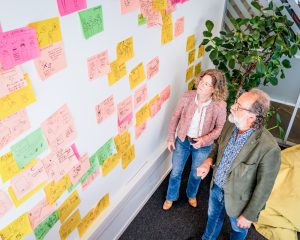The Eindhoven Engine POWEr FITTing Project
Healthy employees make for a healthy company, which explains why leading European industrial regions like Brainport are keen to understand what defines a healthy work environment. The recent health crisis has made painfully clear how our society and economy are impacted when our well-being is threatened. Working from home has increased sitting time by almost 60 minutes a day. By thinking ahead, Brainport is harnessing partners’ talents, including Fontys, Hockey Club Oranje-Rood, IMEC-NL, TWICE, TNO Holst Centre and Eindhoven University of Technology (TU/e) to make the region not only the smartest region but also full of vitality. By collaborating in the FITT project, these organizations actively invest in healthy environments to develop intelligent, preventative and data-secure solutions that keep people active, healthy and resilient.
In the years leading up to the COVID outbreak, many Dutch companies faced rising figures for employee sick leave. In 2018, large corporations reported workforce absenteeism of around 5%, SME’s slightly lower at 3.8%. Both mental and physical illness was on the rise. And a study by TNO worked out that each workday lost through illness cost the company 250 Euro.
Inactivity in the workplace is a significant problem that poses serious health risks. So how can we stimulate people to exercise regularly? Intuitive technology can be integrated into all kinds of environments, fine-tuned to meet people’s needs—for instance, unique work walk routes, equipped with smart technology to stimulate an active way of working.
FITT technology explained
The challenge of keeping people vital and resilient has become more relevant than ever in the current pandemic – and with home working, it shows that a working environment is not confined to the office space. The growing popularity of smartwatches with inbuilt biosensors to measure heart rate and oxygen levels have caught the imagination of those who want to lead a healthier lifestyle. Even though they are rarely clinically certified, such devices do create awareness.
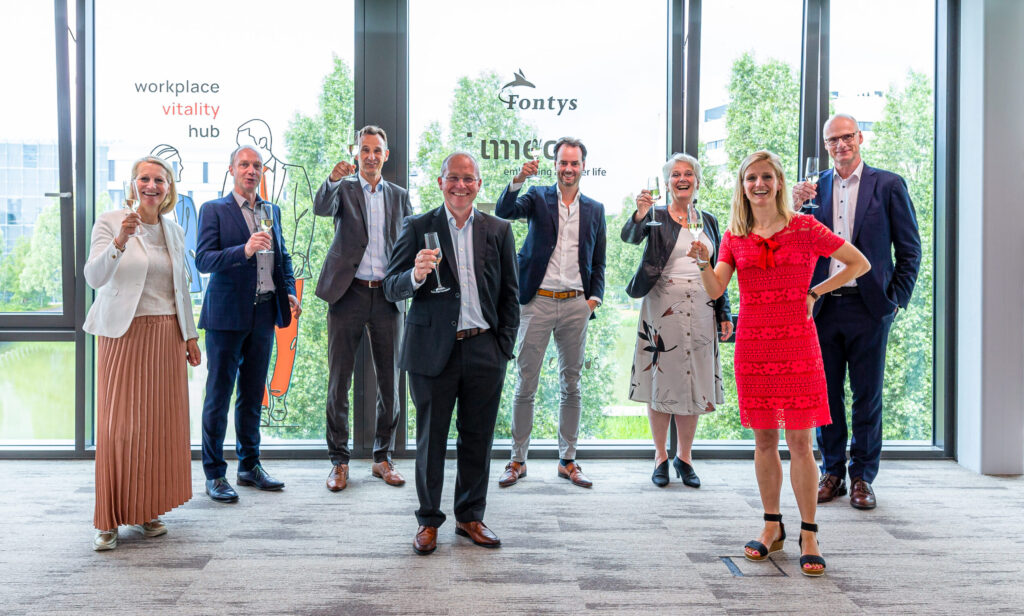
Technology has already helped increase people’s health awareness with wearables like smartwatches, but these are devices are mainly used by the health-conscious. With the technology developed by FITT partners, we can intuitively embed preventive technology into people’s daily routines. We are applying our expertise in body-monitoring solutions to deliver high-quality, multi-sensor data to create invisible, unobtrusive technology that we can integrate into the workplace. The hybrid electronics available within Holst Centre, where chip technology and free form electronics come together, are very suitable.
With the technology developed by FITT partners,
we can intuitively embed preventive technology
into people’s daily routines.
Environmental quality at work is more important than ever. At the test location, air quality, including aspects like particles, temperature and humidity, is constantly measured in real-time. This ensures that the smart climate control system based on algorithms can create an optimal but still generic working climate. Even the colour and intensity of the lighting can be adjusted to the tasks and biorhythm. The challenge is to tailor the environment to suit a specific person. Therefore, we need reliable data of someone’s physical state with sensors mounted close to the body instead of on the skin. The final step is to close the loop and improve someone’s wellbeing and productivity by adjusting the working environment.
The FITT partners have jointly created test office spaces at the High Tech Campus Eindhoven to put this technology to the test in a real-life working environment. It is known as the Workplace Vitality Hub, located on the High Tech Campus Eindhoven.
POWEr FITTing Project at Eindhoven Engine
Marieke van Beurden, Program Director Human Vitality & Technology at Eindhoven University of Technology (TU/e), is the new Workplace Vitality Hub manager and leads the Eindhoven Engine POWErFITTing project. “This project is one of the first FITT vitality projects to be set up around the new vitality hub. We’re making active use of the broad network that the Eindhoven Engine offers.That starts by organizing brainstorming sessions between education organizations like the Eindhoven University of Technology and Fontys University of Applied Sciences and the large sports federations like the Dutch national hockey club Oranje Rood. But we are also finding practical applications for research projects using social feedback like Stimulight, which makes exercise data visible. So what we learn at the test site can also be directly applied in both classrooms and sports center.”
“Our link with the hockey club is not only fascinating but also quite logical. The Oranje Rood Hockey Club has a business network of around 120 SME companies operating in the Brainport region. These members are showing interest in making an active contribution to vitality awareness in the region. So that’s why the POWErFITTing project organizes vitality seminars and visits, as well as student hackathons around relevant technologies in the working environment.”
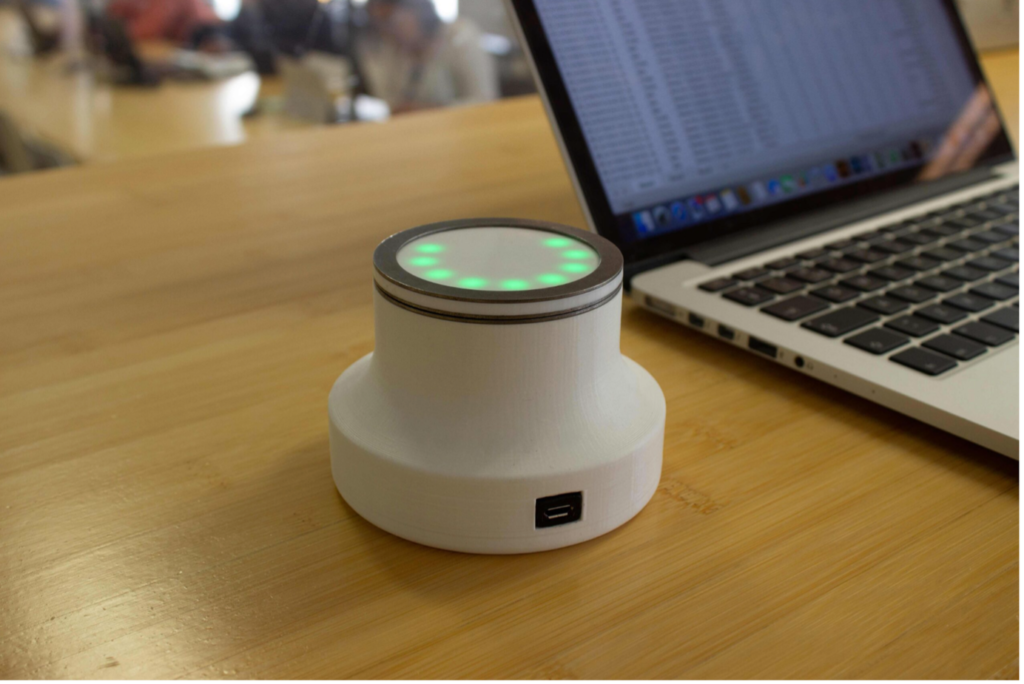
[In Dutch]
Het onderzoeksproject ‘Advanced long-range piezoelectric wafer stage’ voor ASML is ruim twee jaar geleden van start gegaan onder de vlag van TUE’s High Tech Systems Center, en later ondergebracht en verruimd in de Eindhoven Engine. Dit artikel geeft een update van dit ALP-project, waarbij nieuwe concepten voor waferstages worden gezocht buiten de comfortzone van de gevestigde ontwerpprincipes. Het idee is dat juist door er compleet tegenin te gaan wellicht een potentiële route voor de toekomst wordt gevonden.
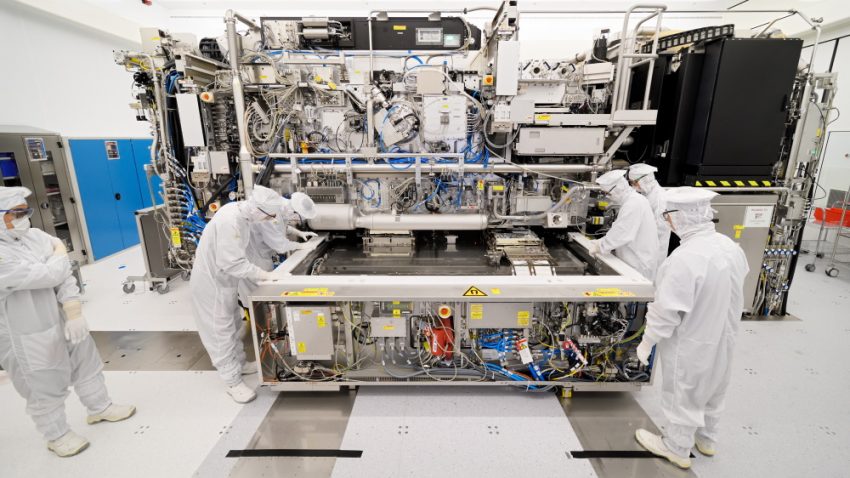

Eindhoven Engine Newsletter – October 2021
This fall brings us some more freedom of movement. We are very glad to have the possibility to return a bit more often to our offices and labs to work, meet and collaborate with each other. The relaxation on the TU/e Campus allows us to finally organize our next large onsite event: the Hack2Impact hackathon on 26 to 28 November at our co-location on the TU/e Campus. Further exciting news to mention is that the Eindhoven Engine OpenCall 2022 will open as soon as early November and will close in February 2022. More details will follow soon.
Currently one of our projects VIPNOM (Virtual Position Noise Measurement) is looking for two outstanding PDEng candidates within the field of Acoustic Imaging and Signal Processing.
About the Project
Noise is the second largest harmful environmental factor to human beings in Europe and claims 1.6 million healthy life years each year, mainly due to stress and sleep disturbances. VIPNOM focuses on the development of advanced noise measurement methods and acoustic virtual reality.
To effectively combat unwanted noise, it is important to first be able to measure it. Currently, noise is measured by placing microphones at specific locations and those measurements made are applicable for those locations only. VIPNOM advocates the use of microphone arrays at central locations, where noise levels at several other locations can also be measured simultaneously, such as at the balconies of an apartment building next to a noisy road, or across a large area of the city center.
In order to accurately measure noise levels, VIPNOM will further develop, optimize and implement the methods that are developed in the ZERO NWO project. The resulting algorithms will be tested in the living labs: Stratumseind, Strijp-S, and the Philips Stadium. Additionally, the same techniques will also be applied in an acoustic virtual reality to allow interested parties (such as citizens and policy officers) to auralize and experience noise beyond just decibel values on a written report.
We are looking for two PDEng candidates who will strengthen the Sorama team. Start date is end of November 2021. During the project the candidates are encouraged to spend part of their work at Eindhoven Engine as well as the TU/e. While one position will focus on the development of the algorithms and the other on the implementation, the actual scope may be personalized (depending on the profile of the candidates). The candidates will also be registered at TU/e and complete training courses related to the project. Program graduates will be awarded a certified diploma and the degree “Professional Doctorate in Engineering” (PDEng).
This project is funded by Eindhoven Engine.
Electronic Systems group at TU/e and Sorama
The Electronic Systems group consists of seven full professors, two associate professors, eight assistant professors, several postdocs, about 40 PDEng and PhD candidates and support staff. The ES group is world-renowned for its design automation and embedded systems research. It is our ambition to provide a scientific basis for design trajectories of electronic systems, ranging from digital circuits to cyber-physical systems. The trajectories are constructive and lead to high quality, cost-effective systems with predictable properties (functionality, timing, reliability, power dissipation, and cost).
Sorama is a highly innovative company that leads and redefines the frontiers of knowledge in acoustic imaging. This is achieved through intensive collaborations with academic partners and also relentless in-house R&D efforts, effectively bridging the gap between academic findings and industrial know-how. Sorama aims to improve the quality of life for all people, wherever they are, by providing the technology to Make Sound Insightful. Founded in 2009 as a TU/e spin-off by Rick Scholte, Sorama is one of the Netherlands’ Top 250 Growth Companies in 2021.
Requirements
We are looking for excellent candidates that add value to Sorama and the ES group with the following profile:
- Master degree (preferably in computer science, mechanical engineering, electrical engineering or related)
- Experience in signal processing is preferred
- Proficient with C++, MATLAB, (preferably CUDA as well)
- Driven, eager, enthusiastic, ambitious personality
- Quick learner, able to and interested in acquiring new skills and competences,
- Affinity with technological products and solutions and working in a high tech environment
- Live in/near Eindhoven or willing to relocate
Appointment and salary
We offer a full-time, fixed-term, 2-year contract at Sorama including:
- Competitive salary
- 25 Holiday days and the option to purchase additional days
- Challenging work environment where you can create global impact through our unique solutions
- Operate in a fast-growing company with good future perspectives
- Knowledgeable and inspiring colleagues
- Eindhoven Engine and TU/e interaction days throughout your project
- A flexible work environment
- Unique office location at Strijp-T, a 5-minute walk from the Eindhoven Strijp train station
- Excellent coffee and rooftop BBQs
Interested?
Please send your CV, including a detailed curriculum vitae, a letter of motivation, a portfolio with copies of diplomas with course grades and contact information of two references, to jin.jack.tan@sorama.eu under the subject “PDEng student on Virtual Position Noise Measurement”.
For more information on the position, please contact dr. Jin Jack Tan jin.jack.tan@sorama.eu or call our office at +31 40 3041019.
“Using this view, I can perfectly explain what Brainport stands for,” says Paul van Nunen when he casually walks up the wooden floor of the roof garden with a cup of coffee in his hand. It’s noon and together we see Strijp-T bathed in the golden September sun. Although he’s the director of Brainport, moments later he is energetically pulling at two iron benches to anchor my portable light stand. “You can concentrate on your photography. I will keep an eye on your equipment so the wind doesn’t damage it.” In the hour to come, we will discuss the pending end of the Regio Deal and how Brainport can keep supporting Eindhoven Engine. We will also learn that Paul’s demonstratable willingness to cooperate and can-do attitude are what he values most.
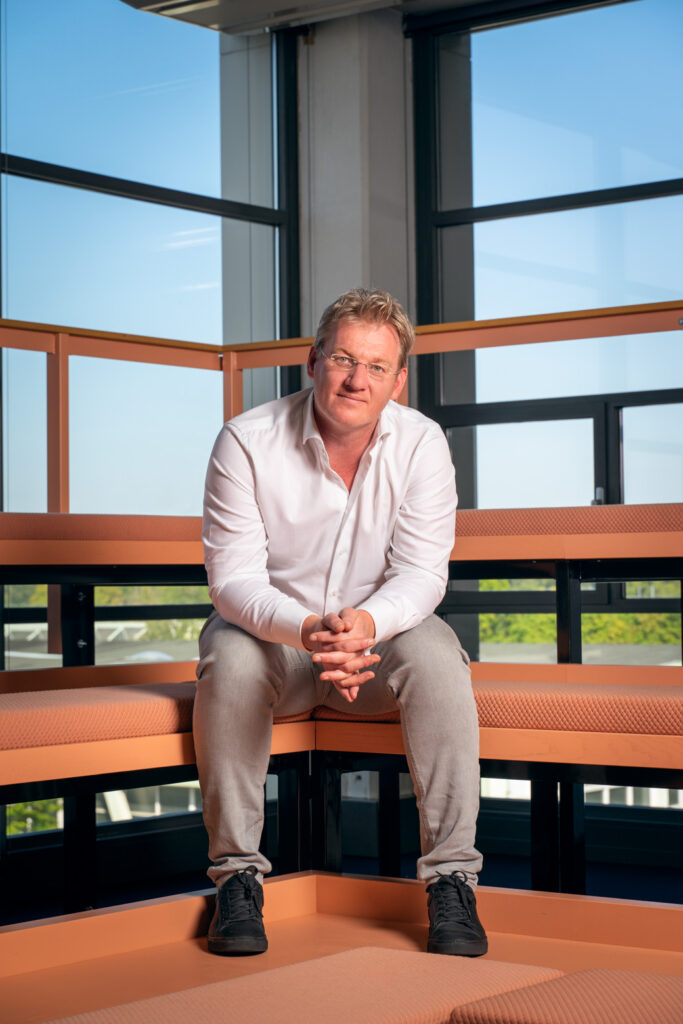
“With the Regio Deal coming to an end in 2025, we have to come up with ways to fund Eindhoven Engine.”
Paul van Nunen, director Brainport Development
Not the straight road, I look for the small and bending one
“I believe we are obliged to do the right thing, not only at home but also at work,” says Paul when we sit down after the photoshoot. Somewhere deep inside of me, I have a vision of where we have to end up. During my career, I learned that the best route to that goal often leads down a small and bending road. Finding and navigating these roads is my job, and I love doing so together with all my colleagues at Brainport. It keeps us excited.”
“Of course, you can look like a strong leader if you say that everybody has to keep their mouths shut and keep their heads down and so forth. It probably looks good in the papers too. For me, that’s the straight road. But I can tell you one thing for sure, after a year you will have accomplished nothing. Solutions often stare you in the face. I call those birthday party solutions. They are easy to point out but actually enacting such a solution is something else.”
Making things happen is quite a job
“We know that we need multidisciplinary teams to come up with meaningful solutions to the everyday challenges in our society. Organizing these teams is an easy idea to suggest and get behind. It sounds nice. To ensure that the right disciplines meet each other by organized coincidence takes effort and is quite a job. You need driven people who believe in this idea of open innovation. People like Katja Pahnke and Maarten Steinbuch who are determined to create a NATLAB 2.0 and ensure that multidisciplinary teams see the day of light. The Brainport region is quite the place to achieve this.”
Beware of fragmentation
“With Brainport, we are building ant nests. In that sense, bringing disciplines together and organizing coincidences. For that, you need personal attention and a location. Eindhoven Engine is a great place for that. The trouble is that we too often count on throwing everything at the wall and seeing what sticks. On the one hand, this is a strength of this region. There is always a brainiac coming up with a new plan to start a brand-new initiative. But we have to watch out for fragmentation. Don’t start something completely new before Eindhoven Engine has had the chance to develop itself properly. I think the Engine has to grow and so we have to say to the region, ‘if you want to work with multidisciplinary teams on meaningful solutions, we do it at Eindhoven Engine’.”
“If you want to work with multidisciplinary teams on meaningful solutions, we do it at Eindhoven Engine.”
With one strong proposition to the Hague
“In order to grow, Eindhoven Engine needs continuity and, with the Regio Deal coming to an end in 2025, we have to come up with ways to fund the Engine. I think Jan Mengelers is right when he says that initiatives like Eindhoven Engine need a structural grant from a regional or national government just to pay for their indirect structural costs. With the Regio Deal, we’ve built something special with Brainport. But that’s my plea for a structural grant from the government. We have achieved so much. It would be such a waste if we had to start all over again. Luckily, the government in the Hague recognizes our success, but this is when we must stay focused and avoid fragmentation. We won’t get support from the Hague if everyone comes up with their own proposition, so let’s combine, using Eindhoven Engine for instance. In that way, I will become the ambassador of Maarten and Katja.”
Eindhoven Engine, make your progress visible
“People always need to know what they get in return for their investment. And that’s the problem with investments in high-tech platforms: results can take years. It’s hard to give people insight. Eindhoven Engine can help to make our progress visible. Their calls have a short duration of three to four years and produce tangible results, like those of the neonatal care project with their artificial womb. As long as the new calls of Eindhoven Engine have a strong correlation with the key technologies of Brainport, we can go to the Hague with a strong case for funding and continue towards our goals.”
Due to the Covid measures that currently (13 November 2021) apply the hackathon is postponed to March/April 2022.
We are organizing a hackathon! Together with MIT Hacking Medicine, TU/e and Fontys, Eindhoven Engine will organize a weekend-long hackathon called Hack2Impact.
Guided by MIT Hacking Medicine experts, we would like to invite and challenge you – students and technical and medical professionals who have a passion for healthcare equity – to generate innovative and impactful new solutions for Health@Home challenges.
- Date: Friday evening 26 November – Sunday afternoon 28 November
- Location: Eindhoven Engine on the TU/e campus
The admission fee is 20 euros and includes materials, tools, resources, food & beverages, coaching by field experts (engineers, clinicians, entrepreneurs, programmers and designers) and a memorable experience!
Are you ready to hack to make an impact? Pre-register here to join Hack2Impact – Health@Home!
We are also looking for mentors and sponsors. Interested? Send us an email at hackathon@eindhovenengine.nl and we will contact you to provide more information.
Do you have friends or colleagues who also have a passion for healthcare equity? Please spread the word: www.Hack2Impact.nl
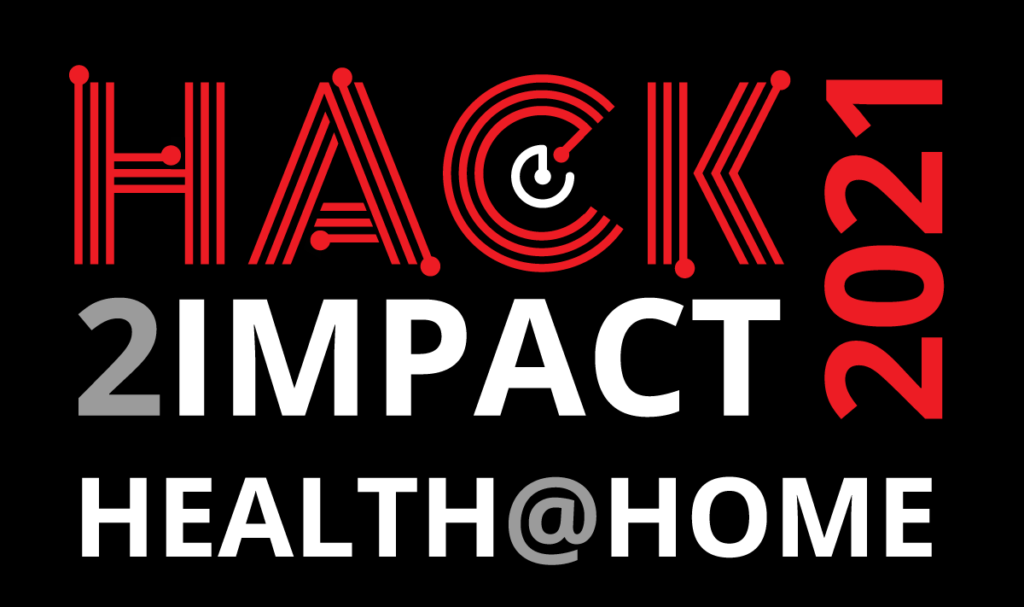
26-28 November
TU/e Campus
On 6 October, Eindhoven Engine was present at the Fontys Career Event in the Klokgebouw, Eindhoven, and it was great to be back at onsite events. It was wonderful meeting 800+ enthusiastic students from ‘Fontys Hogeschool Economie en Communicatie’ and informing them about our various assignments from our projects in marketing communication, economics and business administration. It was a successful afternoon and we have made some great possible matches. We are currently following up with interested students and setting up meetings with them and the leaders of the projects.
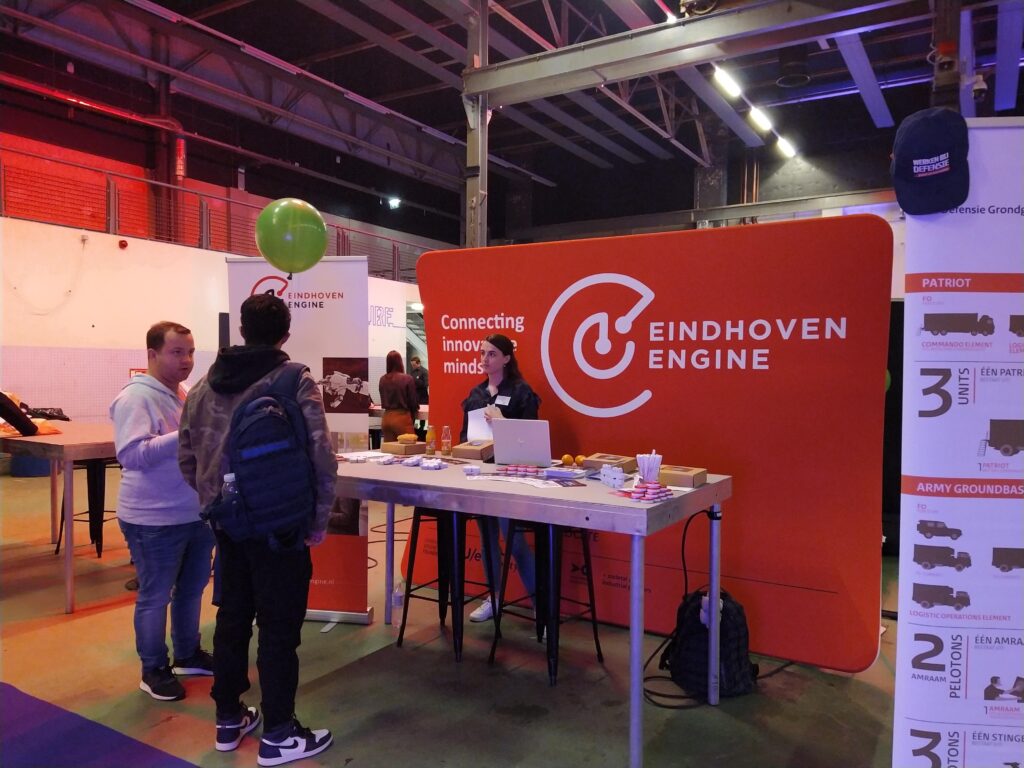
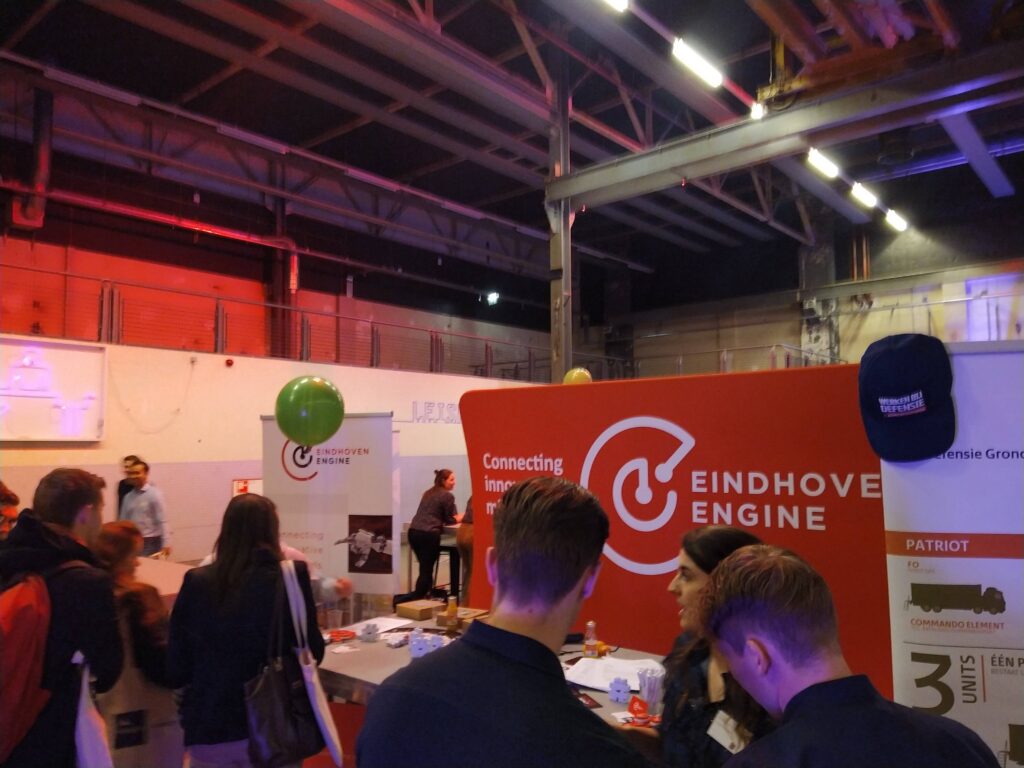
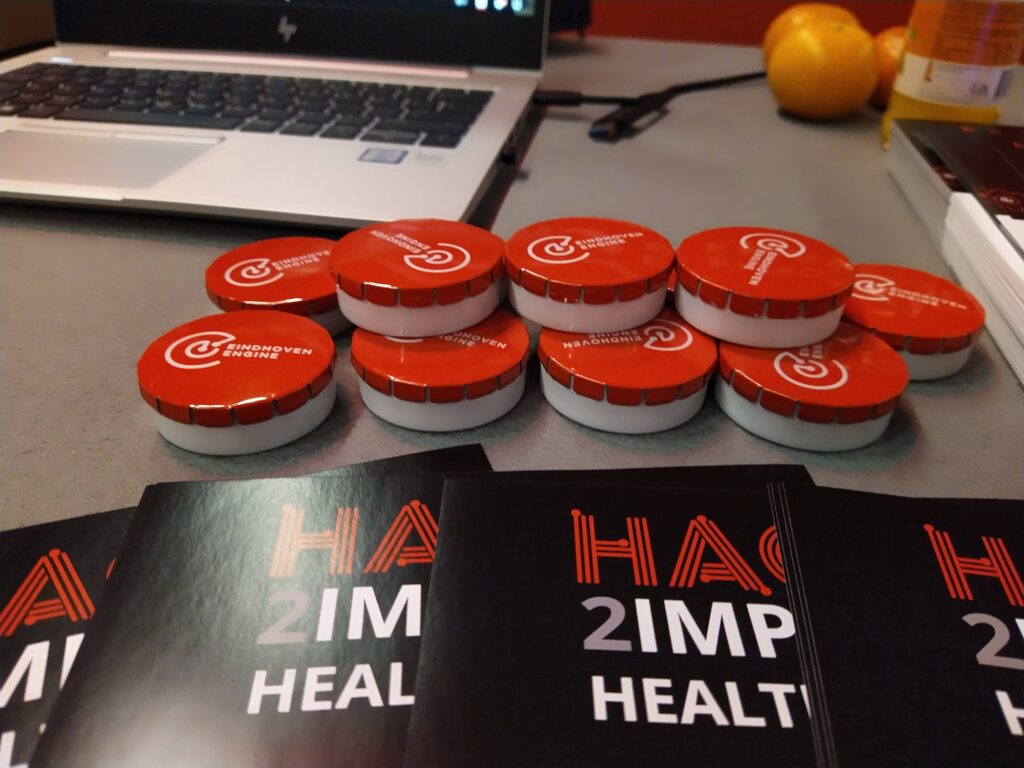
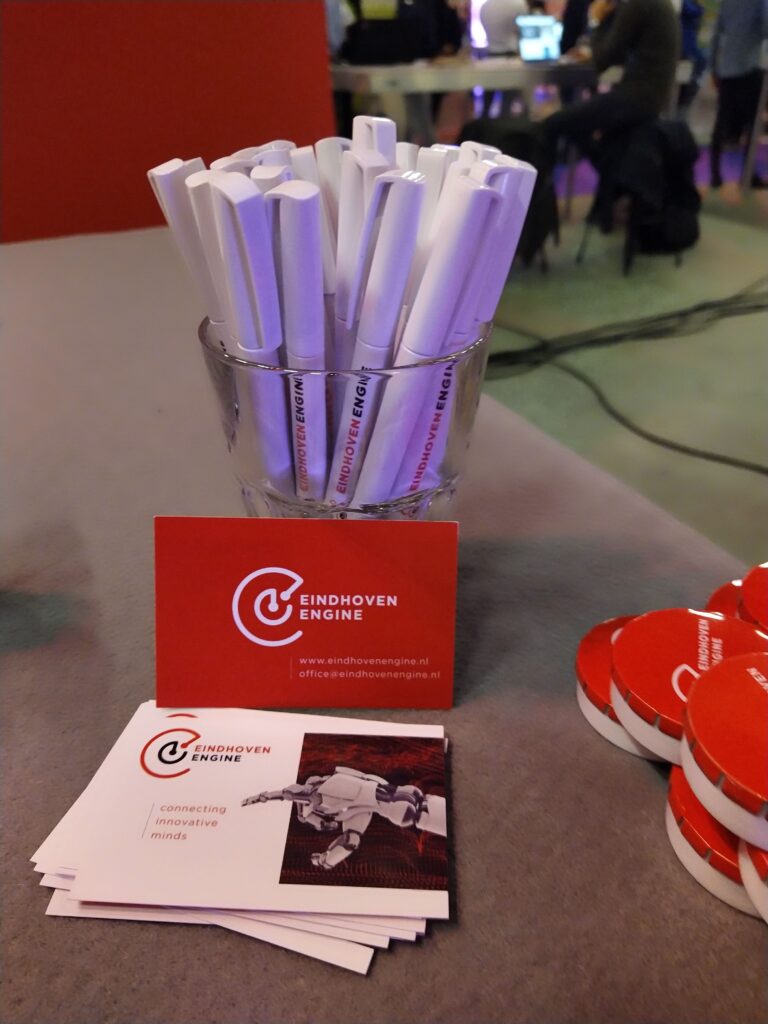
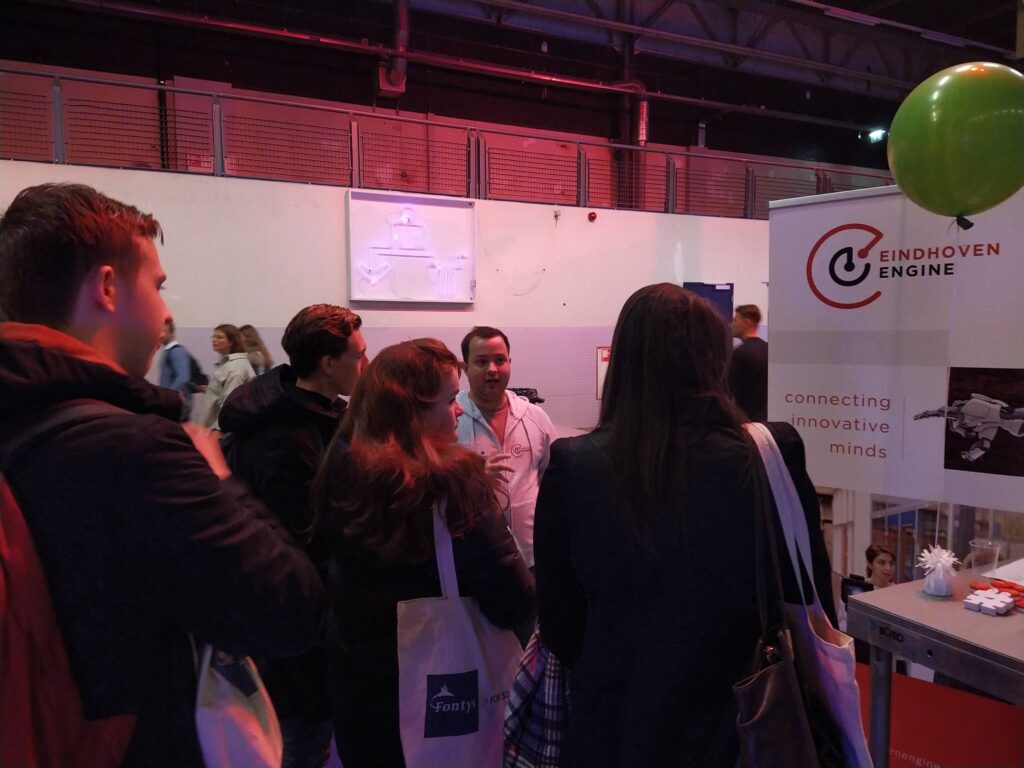
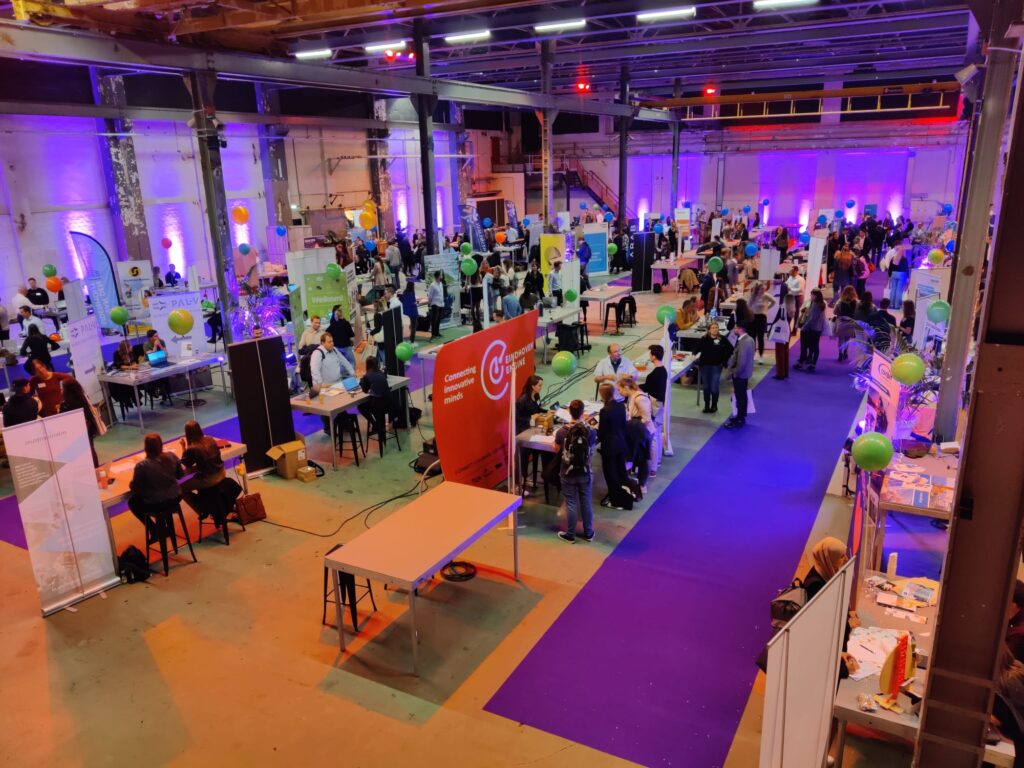
So good to be back after the holidays, you can just feel the energy flowing again! Now that new relaxations of COVID measures are in effect, the TU/e Campus is buzzing with students again. Also, more and more people are rediscovering the co-location, like a few PDEngs who are giving our MMP co-location much-needed energy.
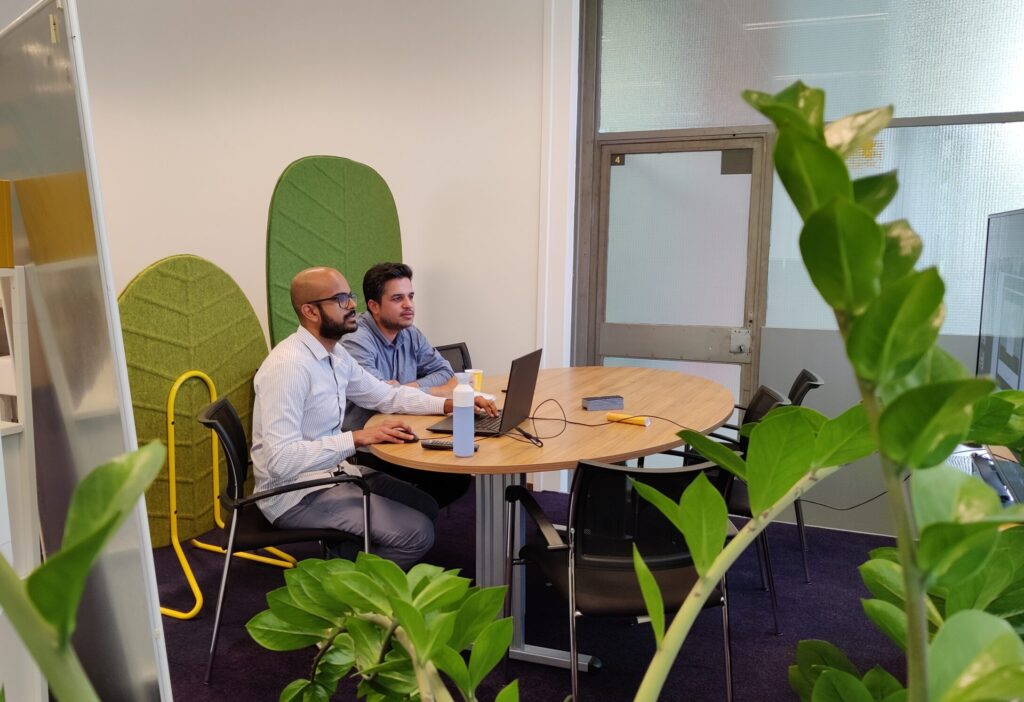
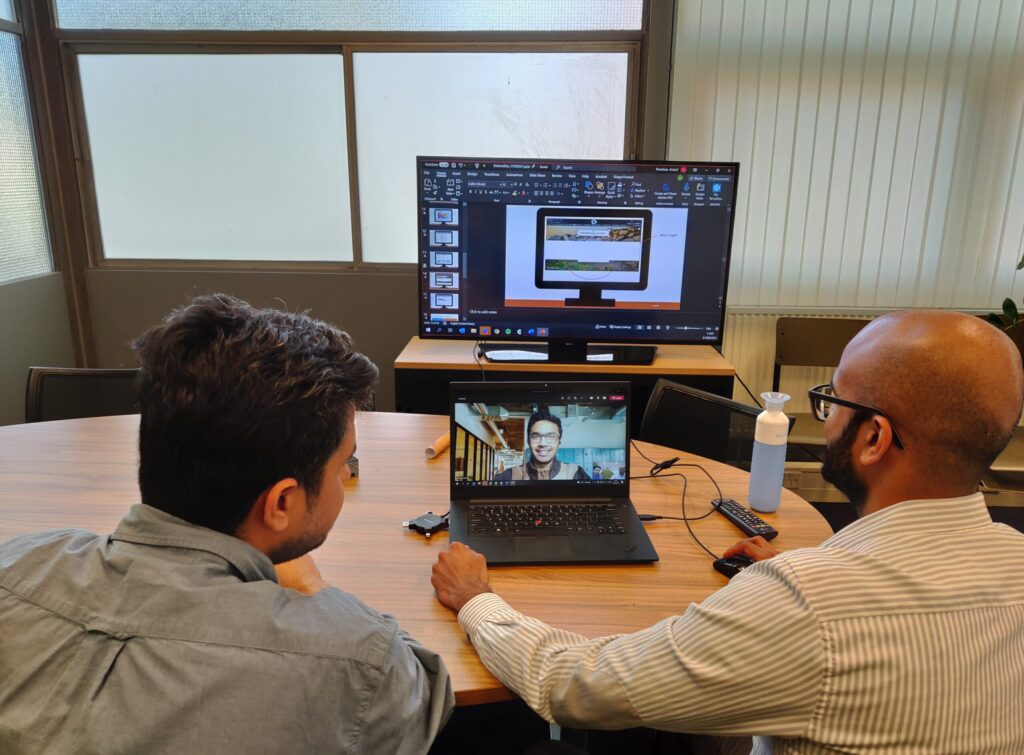
Last week, we kicked off the new academic year with a webinar to welcome our new four awesome projects (Brains4Buildings, Vipnom, Neon EE and GEM-Stage); many thanks to the speakers and participants. Interesting talks and even more interesting discussions. One thing is for sure: they are ready to accelerate innovation with you, the Eindhoven Engine community! And good news, the next webinar will be in a hybrid from. I hope to see you soon, face-to-face at our co-location @TU/e Campus again!
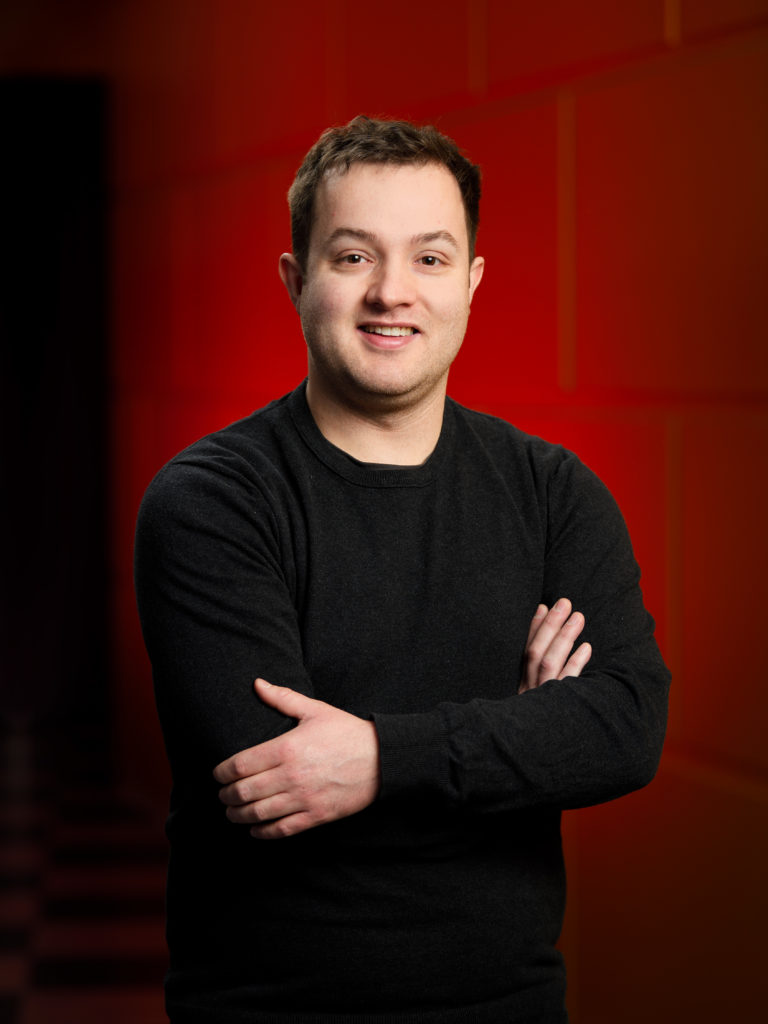
“I hope to see you soon, face-to-face at our co-location @TU/e Campus again!”
Joris Dufils – Community Eindhoven Engine
Our economic and political reality is becoming increasingly complex, not just complicated. The economy is challenged by important uncertainty in many fields: unstable economic development, a fast-changing geopolitical situation, political instability in many countries, major questions on the ethics and values of what is being done, the climate and our relationship with the planet, disruptive technologies and a disruptive societal situation. Most technology management approaches and methods are not based on this reality of a complex, systemic world and therefore do not always equip engineers ideally.
In order to harness the reality of today, in order to create the future rather than be subjected to it, engineers need to understand what innovation means in an ever-changing, uncertain world disrupted by exponential technologies. They need to know how to construct business models that matter using technologies for positive impact. In addition to their technological specialization, engineers need to develop an understanding of/competences in turning the great potential of (exponential) technologies into business models to bring to market.
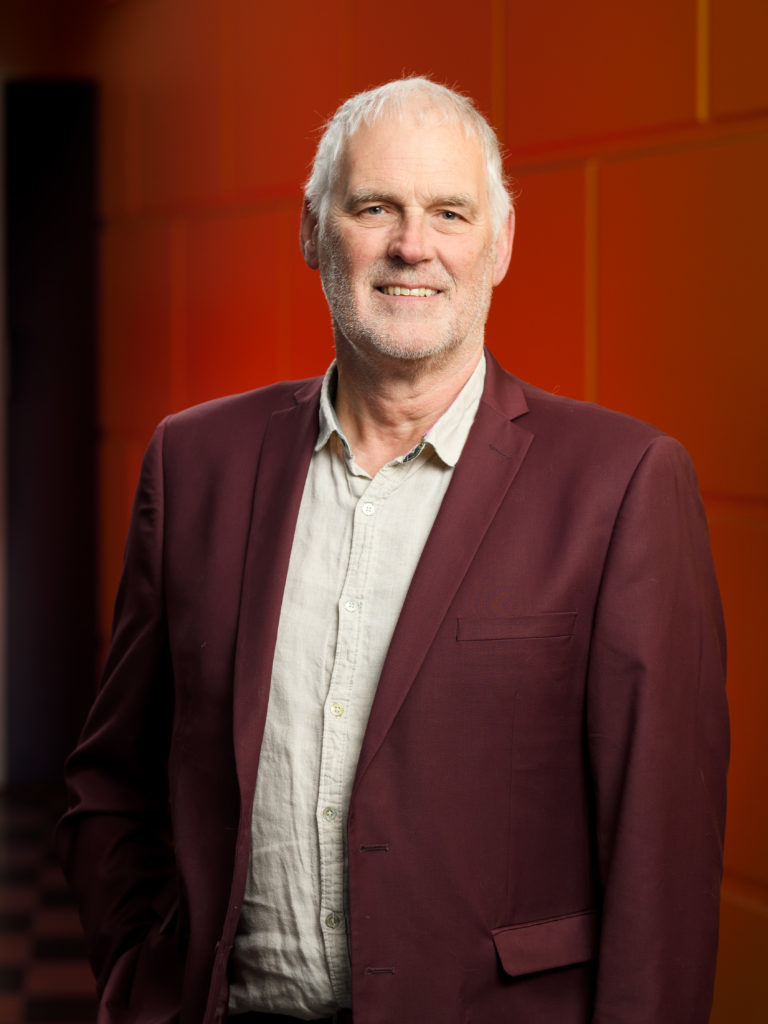
Grant from PATO
Last June, the Academy of Eindhoven Engine received a grant of €50,000 from Stichting Post-Academisch Technisch Onderwijs (PATO) to develop the training course ‘Business Model Innovation in an Exponential World’. The outcome of this course will be the development of a mindset with which engineers can comfortably explore, understand and act in a hyper-complex world which is disrupted by exponential technologies while also becoming an entrepreneur and creator of sustainable, scalable solutions. This transformation of people will eventually be the engine for corporate and societal transformation. ‘Business Model Innovation in an Exponential World’ gives the insights needed and allows us to experience it first-hand.
In the upcoming months, this concept will be tested in various formats: a half-day compressed version for students and four full sessions with a few Eindhoven Engine projects.
Start the course
The course will be structured with two variants. Following the concept testing, the short virtual course will start in December 2021. Information about registration and other details will follow soon. The full five-day course is planned to take place in the first quarter of 2022.
“Make sure that in every meeting or every project, someone takes the role of the seventh generation”
The Great Law of Haudenosaunee Confederacy
